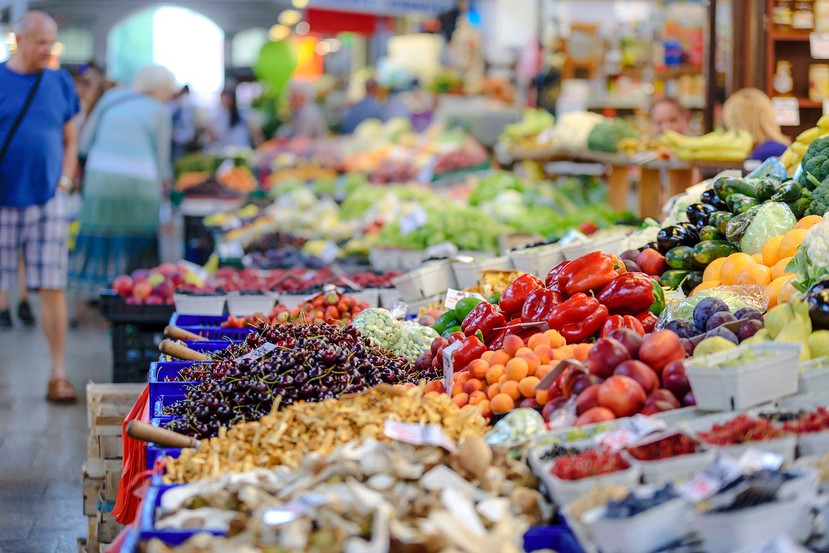The impact of our food choices... in a nutshell
- Sabrina Sznák
- Jun 19, 2020
- 3 min read
We have to reconnect with nature. In the globalized world we live in, it easily escapes our minds where our food comes from, how it was produced or who produced it. For instance, I recently read on the European Commission website that the top 5 eaten fish in the EU were mostly imported from non-EU countries, including India, China and Ecuador. (*) It shocked me quite a bit. How is it that people actually consume in this manner? Food production counts for 30% of greenhouse gas emissions and occupies 40% of global land, while agriculture alone is the largest cause of global environmental change (2). The way we consume affects the ecosystem and this is already visible with more frequent and stronger droughts, floods, and extreme temperatures.
We need to reevaluate the way we eat, produce our food, and live. Small changes at a time make a terrific impact in the end. Even more powerful: your example could inspire people to change their behaviour.
So, take action:
Shop locally
Support your community, aid the local economy to grow. Shopping locally tends to be more expensive than retailers due to (mainly) economies of scale. Small farmers and family businesses may struggle to compete with these business models and conditions, whose earnings ultimately end up in already wealthy pockets.
Besides, reflect on the environmental impact there is, for instance, in an avocado coming from a very distant place. Similarly, it is far from normal to have summer fruits all year long on a supermarket shelf. Short value-chains do benefit tremendously the environmental imprint.
Another positive outcome from shopping locally is the interaction with people. For some, exchanging a few words with the baker or with a neighbour at the cashier line might be the only daily intercommunication.
Small stores constantly demonstrate an active care for customers and provide good service.
Eat seasonally
Quality parameters in food change naturally along the year, among other factors such as the production method (organic!) Seasonal foods are genuinely richer in flavour, along with a higher nutrient balance for being harvested at their peak.
Less packaging: plastic footprint continues after disposal, even if it is dumped, incinerated, recycled, or composed. On some occasions, packaging could be avoidable. Go for loose vegetables and fruits when not using reusable bags for holding them, give prominence to products with non or single and recyclable packs (or at least the minimum possible.)
Drinking water
In several countries, tap or filter water is safe for human consumption. Instead of picking bottled water, probably coming from several kilometers away, make the switch and feel your active participation in reducing CO2 footprint - alongside saving some money!
Reconsider your eating habits
Changing behaviour towards food means eating with more consciousness and managing quantities better. Reducing food loss and waste is both a humanitarian and an environmental aspect. Sadly, still in our days one-third of all the world production is expended carelessly. Wasting food means wasting energy, water, fuel for transport, and eventually its packaging.
Additionally, it is widely known that plant-based diets have the lowest carbon footprint. However, you might not be ready or willing to make a total switch. Alternatively, lowering the amount of meat is already a radical adjustment not only for the environment but also for your health.
Rethink your commuting
Walking or cycling will definitely pay off keeping you in shape, as well as aiding lowering the air pollution. If you drive every day a short distance to the office or to clients, give it a try. Physical activity enhances the release of endorphins, which trigger feelings of positivism and happiness. For those further distances, the eco-tip would be using electric cars, public transportation or carpooling.
I hope you liked this post! Happy to hear from you @lifewayreset :)
-------------------------------------------------------------------------------------------------------------------
Inspirational articles
Food Print website: https://foodprint.org/eating-sustainably/
University of California (2019) Plastic's carbon footprint: Researchers conduct first global assessment of the life cycle greenhouse gas emissions from plastics." ScienceDaily. ScienceDaily, 15 April 2019.
University of Michigan (2019) Carbon Footprint Facts. Center for Sustainable Systems. Aug 2019. Pub. No. CSS09-05
WWF. Fight climate change by preventing food waste. A few simple steps could help reduce the environmental impacts of wasted food.











Comments